Pet Dental
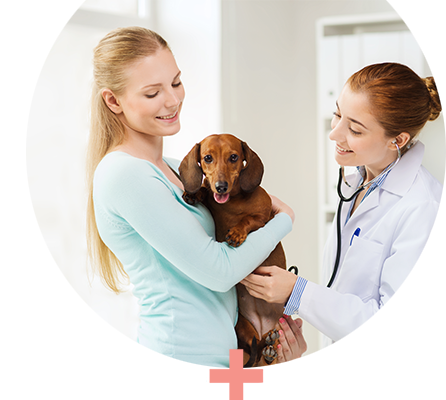
Just as we need to look after our teeth to maintain optimal health, pet dental care is also super important. As with most health matters, prevention is better than treatment. So how can you look after your pet’s teeth, and recognise dental issues if they arise?
Here at Plus One Vet, we are highly experienced in pet dentistry. We are happy to advise you on how to best look after your pet’s mouth or if you have concerns relating to their dental care.
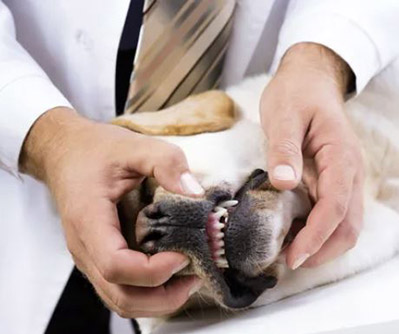
Dental for dogs – Why is it so Important?
Did you know 80% of dogs will experience dental disease by the age of 3? While it can be easy to dismiss a dog’s bad breath, as just a result of their diet, bad breath could actually be a sign of disease.
So how can you manage your dog’s dental health and what signs can you look out for, if there is a problem?
What are the signs you need dog dental
While bad breath is a common sign something is not quite right with your dog’s dental health, there are other signs of disease you can look out for:
Discoloured or loose teeth
Excessive drooling
Blood-stained, receding or inflamed gums
Reluctance to chew food
Flinching when you touch their head
Facial swelling
Lethargy or aggressive behaviour
Pawing at the mouth
Poor appetite and weight loss
If your dog is suffering from any of the above symptoms, they may have periodontal disease. This means your dog’s teeth and gums are inflamed due to a buildup of plaque. If left untreated, disease can lead to kidney, heart and liver infections, so it’s best to make an appointment with our vet clinic to discuss a dental care plan.
The good news is periodontal disease in dogs is very treatable with dentistry by a vet.
Dental for Cats
As in dogs, if you notice your cat’s breath has worsened, or they are exhibiting signs of discomfort around their mouth, it may be worth booking your cat in for a dental check up.
How will you know if your cat has periodontal disease?
They will often drool more than usual, become more lethargic or aggressive or become reluctant to chew food, leading to weight loss. The easiest way to check your cat for disease is to open their mouth and look to see if their teeth have become discoloured or loose. You’ll also need to look for any signs of inflammation such as redness or receding gums, ulcers, swelling or lesions.
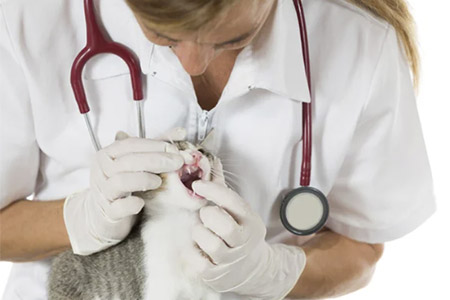
What causes dental diseases in pets?
As in humans, pet dental disease is inflammation caused by a buildup of plaque on the teeth and gums. This happens when food particles and bacteria stick to the tooth surface and calcify into tartar.
How to take care of my pet’s teeth?
To keep your pet’s teeth clean and mouth healthy, we recommend brushing your pet’s teeth daily.
Premium dry pet foods and dental treats are also available, that are formulated with enzymes and ingredients often found in toothpastes. These products work by slowing the dental disease process by preventing plaque from forming on the teeth.
You can also purchase animal treats and chews, such as natural products including pig’s ears, noses and trotters and raw bones. When your pet chews these items, plaque is removed as they rub on an animal’s teeth, and as saliva is produced.
Importance of dog teeth cleaning
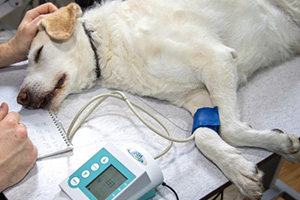
Brushing your dog’s teeth everyday will help keep plaque build up at bay. If you’re new to pet toothbrushing, we can provide you with a specially made dog toothbrush. A toddler toothbrush will also work really well, as long as it is kept out of reach of small children!
We can also advise you on the best toothpaste to use, from flavour options like chicken or beef as it’s not a good idea to share your toothpaste with your dog. The ingredients in human toothpaste could upset their stomach.
Cat teeth cleaning – Why even cats need their teeth brushed

Once they are 3 years old, 80% of cats typically exhibit evidence of teeth or gum problems. It doesn’t have to be this way, as dental disease is very preventable.
Daily brushing can help prevent the buildup of plaque and prevent disease in cats and specially formulated pet toothpastes and toothbrushes are available.
What does pet dentistry involve?
Animal dental procedures are similar to those performed by a dentist for humans. The main difference is dogs and cats will always be put under general anaesthetic for dental treatments.
Once under anaesthetic, your pet’s teeth, gums and mouth will be examined, we will remove all plaque and tartar build up, and their teeth will be polished. We can also provide diagnostic imaging in the form of dental x-rays in order to determine if your pet requires further treatment or surgery.
If surgery is required, we will provide you with an aftercare plan, to manage wounds and associated pains with medication and a follow up appointment.
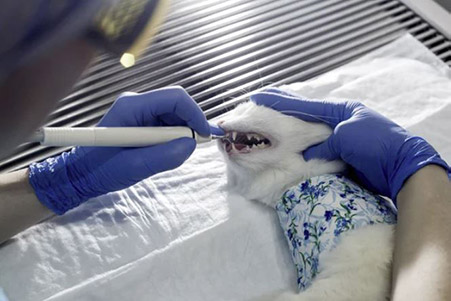
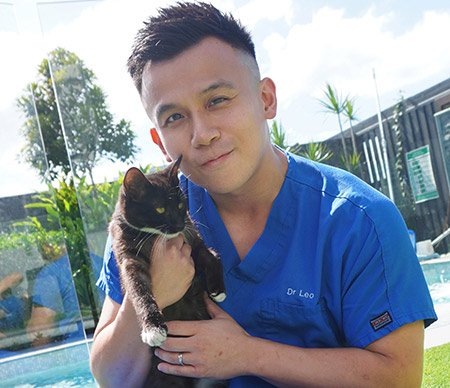
Providing expert pet dental care
Here at Plus One Vet, our priority is ensuring your pet is healthy and comfortable and you are supported in making the right dental care decisions for your dog or cat.
Dr Leo Wong is a well-known and much-loved vet, providing animal care in Brisbane for many years. The Plus One Vet Clinic, services Sunnybank, Sunnybank Hills, Calamvale and Algester.
We’re looking forward to welcoming you to Plus One Vet.


